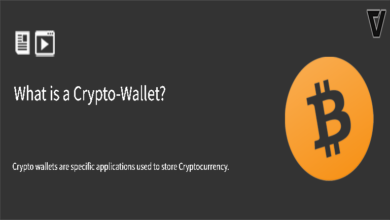A crypto wallet is a platform that you can store your cryptocurrency safely. Crypto-wallets are available in a variety of forms, but the most common are hosted wallets, non-custodial wallets and hardware wallets.
What you expect to do with your cryptocurrency and what kind of safety net you want to have will determine the crypto wallet option you choose. Hence, we thought of providing you with all the necessary information about the main three types of wallets.
Hosted Wallets
A hosted wallet is the most popular and simple-to-use crypto wallet. When you purchase cryptocurrency through an app like Coinbase and Binance, your funds are automatically sent to a hosted wallet.
It’s referred to as “hosted” because your crypto is kept for you by a third party. This is almost similar to the bank operation, which stores your money in a checking or savings account.
You may have heard of people “dropping their keys” or “missing their USB wallet,” but you don’t need to worry about any of that with a Hosted Wallet. The biggest advantage of storing your cryptocurrency in a Hosted Wallet is that you will not lose your money if you forget your password, but there are drawbacks as well.
One disadvantage of using a hosted wallet is that you won’t be able to use all of the crypto’s features. This can change with the developments and upgrades.
Create a Hosted Wallet:
- First of all, you must select a Platform that you trust. Security, flexibility and compliance with government and financial rules should be your top priorities.
- Make an account for yourself. Fill in your personal information and create a strong password. For more protection, two-step verification (commonly known as 2FA) could be better.
- You can buy cryptocurrency with a Bank Account or a Credit Card on most crypto platforms and exchanges. If you already have cryptocurrency, you can move it to your New Hosted Wallet
Non-Custodial Wallets
You have complete control over your crypto with a Non-Custodial Wallet like Coinbase Wallet or MetaMask because Non-Custodial Wallets do not use a third party service.
While they supply the software required to store your crypto, you are responsible for remembering and protecting your password. There is no way to access your crypto if you lose or forget your password. If your private key is discovered by someone else, they will have complete access to your assets.
You can access more advanced crypto activities like yield Farming, Staking, Lending and Borrowing through Non-Custodial Wallets.
Create a Non-Custodial Wallet:
- Install a Wallet Application on your phone (Coinbase Wallet and MetaMask are two popular choices.)
- Make an account for yourself. A non-Custodial Wallet does not require you to submit any personal information.
- Take note of your Security Key. It’s given as a 12-word phrase at random. You won’t be able to access your crypto if you lose or forget your Passcode.
- Buying crypto with traditional currencies (US dollars or Euros) is not always available with a Non-Custodial Wallet. You’ll need to move crypto into your Non-Custodial Wallet from somewhere else.
Hardware Wallets
A hardware wallet is a physical device. It is the size of a thumb drive that stores your crypto’s private keys offline. Because of their increased complexity and cost, most people do not use Hardware Wallets. Even if your PC is hacked, Hardware Wallet can keep your crypto safe.
Create a Hardware Wallet:
- First, you have to buy the device. Ledger and Trezor are the two popular brands.
- Install the software on your computer. Each manufacturer has its own software that you must install in order to set up your wallet. To set up your wallet, it is recommended to download the software from the official company website and follow the instructions.
- You won’t be able to buy crypto with traditional currencies (US dollars or Euros) in a Hardware Wallet. You will have to transfer crypto to your wallet.
- The above discussion is neither financial advice nor financial recommendation. It is a basic study on cryptocurrency which is done based on resource sources. Therefore, our team accepts no responsibility or liability for any predictions/decisions you make in the industry


